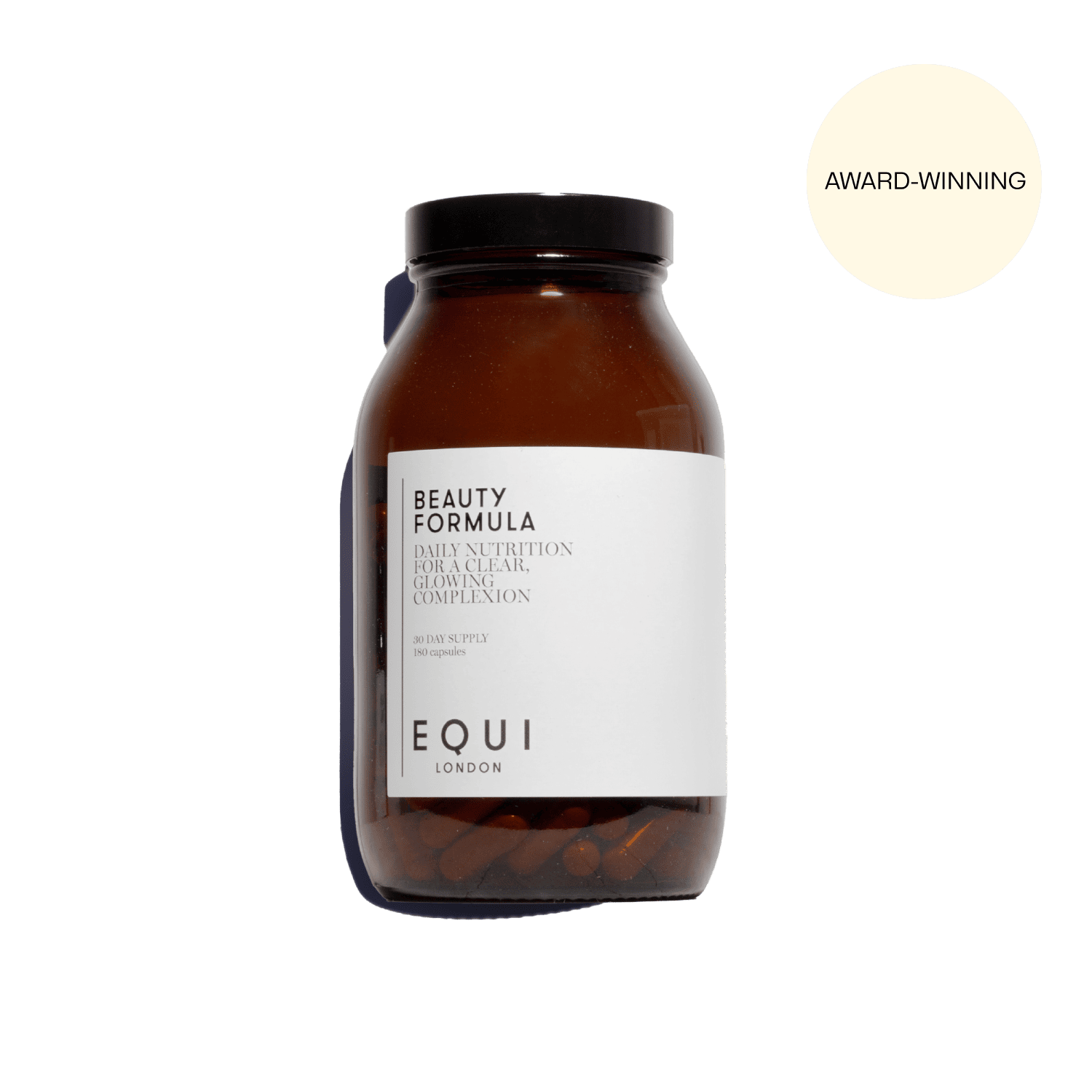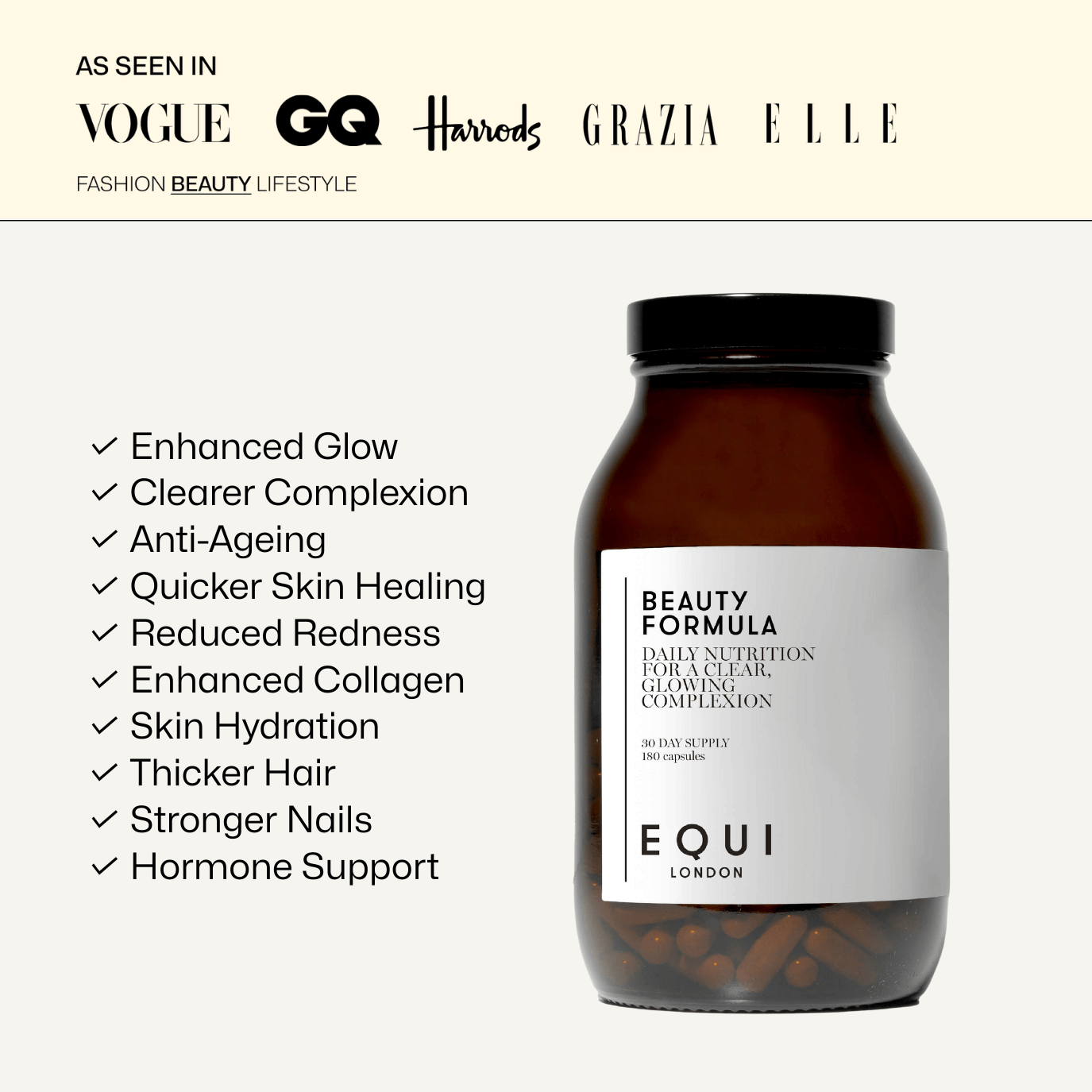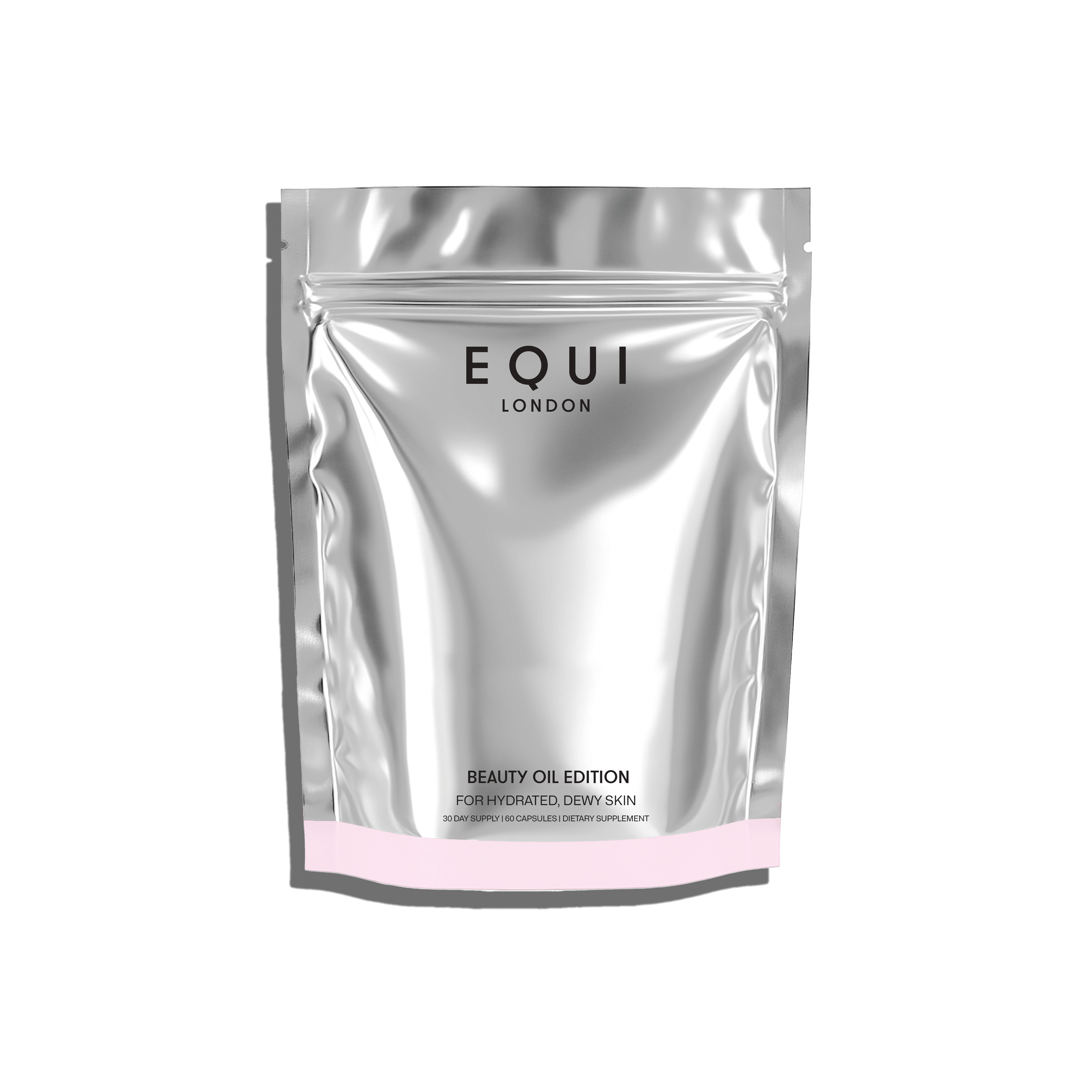
Sleep Cycles, Navigating REM, and the Path to Restful Nights
Today’s blog will unlock the secrets of sleep by exploring our sleep cycles in more detail - a process that despite the fact we experience each night, we're largely unaware of. This dimension of our lives, form our most vivid dreams, deep rest, and rejuvenation, remains one of the most vital components of our health and well-being. However, its nuances are often misunderstood, overlooked, or even feared, thanks to alarming statements from some experts. This blog aims to shed light on our sleep cycles, helping you not only appreciate the science behind them but also offering actionable insights to enhance their quality.
Whilst striving for ultimate health and wellness, we are aware we should be aiming for 7-9 hours of uninterrupted rest. However, beneath this lies a sequence of intricate stages, each serving a unique purpose. One of the most enigmatic and essential of these stages is the Rapid Eye Movement (REM) sleep. This stage is integral for consolidating our memories, especially the short-term ones. After all those hours spent on a task, it's during our rest that the magic of memory consolidation happens and this is vital for us to function at our very best!
But let's not get ahead of ourselves. To truly grasp the marvels of REM, we need to dive deeper into the entirety of the sleep cycle. It's a journey that reveals why there's a peak in melatonin around 2 am and what that means for our body. We also face the conundrum of modern sleep, where late nights, alarms, blue light, and sometimes, anxiety-inducing information can impact our sleep cycles. By understanding our individual rhythms, practicing impeccable sleep hygiene, and perhaps even employing tools to track our nocturnal adventures, we can inch closer to nights filled with restorative sleep. So, whether you're a seasoned dreamer keen on optimising your sleep, or simply curious to understand why sometimes you wake up groggy despite a 'full night's sleep', this blog is for you. We'll demystify sleep cycles, ensuring that every night becomes a gateway to rejuvenated mornings.
The Intricacies of Sleep Cycles – from NREM to REM
Sleep, a daily ritual we all engage in, is not merely a passive process. It consists of various stages, each with its own distinct characteristics and benefits for our overall well-being. Understanding the nuances of sleep cycles provides a clearer perspective on the importance of a good night's sleep. It's not just about quantity but ensuring that we transition through each of these stages effectively, providing our body and mind with the rejuvenation they require. Let’s take a look at each of the sleep cycle stages, to understand their relevance and importance:
NREM Stage 1 (N1)
Non-rapid eye movement (NREM) stage 1 is the bridge between wakefulness and sleep. Lasting for just a few minutes, this stage is characterised by the slowing down of heart rate, a decrease in body temperature, and relaxation of muscles. It's a light sleep, and one can be easily awakened. You know the feeling – you are just drifting off to sleep and a noise outside disturbs you and that’s it you are fully awake again! This stage serves as a transition, preparing our body for deeper stages of sleep.
NREM Stage 2 (N2)
NREM stage N2 is when light sleep deepens. If undisturbed, the heart rate continues to slow down, and body temperature drops further. The brain starts to produce sleep spindles – bursts of rapid brain activity. This stage serves as a buffer, preventing potential disturbances from waking us up, ensuring that our sleep is not easily disrupted. This is when we start to drift off to sleep.
NREM Stage 3 (N3)
Commonly known as deep or slow-wave sleep, NREM stage N3 is a crucial phase for physical rejuvenation. During this stage, tissue growth and repair occur, and vital hormones are released. It's the stage that if disrupted, often leaves us feeling groggy or disoriented. So, if you have ever woken up feeling like this like you need to hit the snooze button, then it could be that you are simply waking up too soon! This deep sleep state is vital for physical recovery and plays a role in aspects of memory and emotion regulation.
REM Sleep
REM (Rapid Eye Movement) sleep is where dreams come alive. Starting around 90 minutes after we fall asleep, these REM stages grow longer during the night. Brain activity during this stage is comparable to when we're awake. It is imperative for cognitive functions, especially in terms of memory consolidation and mood regulation. Studies have indicated that REM sleep plays a crucial role in processing emotional experiences, making it essential for our mental well-being (1).
Which Stage is Most Beneficial?
While each stage of sleep has its own set of benefits, it's not appropriate to label one stage as 'the most beneficial'. Our body requires a balance of all these stages for comprehensive rest. However, if we were to highlight a stage that's recently been gaining a lot of attention, it would be REM sleep. REM sleep, with its role in memory, emotional processing, and even creativity, is critical for our cognitive and emotional health (2). In fact, research by sleep expert Dr Matthew Walker emphasises that while all stages are vital, consistent REM sleep is especially significant for mental health, memory, and regulating emotions. However, it's worth noting that sleep needs and the duration in each stage can vary across age groups and individuals. Also, it's the quality and the balance of all of the sleep cycles that matter, not just REM sleep.
REM Sleep and Its Crucial Role
Rapid Eye Movement (REM) sleep, often referred to as the 'dream stage', has been the subject of fascination for decades. However, it’s pioneering research that has unearthed the roles of REM sleep, and its two such significant functions, which are emotional regulation and memory consolidation. These processes are vital as they help aid emotional healing, resilience and memory.
Emotional Regulation in REM Sleep
During REM sleep, the brain undergoes a unique neurochemical bath where stress-related neurotransmitters like noradrenaline are at their lowest levels (3). This environment allows the brain to process emotional experiences without the usual stress and emotional intensity present during wakefulness. By doing so, the emotional charge of memories gets recalibrated, making them less traumatic when recalled in the future. This crucial aspect of REM sleep aids in emotional healing and resilience.
Memory Consolidation in REM Sleep
REM sleep is critical for both the consolidation of new memories and the integration of these memories within existing neural networks (4). This phase allows our brain to sift through the plethora of information encountered throughout the day, deciding what to retain and what to discard. Furthermore, it links new memories to previously stored ones, creating a richer and interconnected memory tapestry. There is growing evidence suggesting that REM sleep plays an especially significant role in consolidating procedural, spatial, and emotional memories.
What Happens When We Have Inadequate REM Sleep?
A deficit in REM sleep doesn't just rob us of its benefits; it actively harms our cognitive functions. One of the most pronounced impacts is on short-term memory. The brain's reduced capability to process information due to REM sleep deprivation can impair attention, hinder information retention, and degrade decision-making capabilities (5). Moreover, individuals trained on specific tasks and then deprived of REM sleep (but not total sleep) exhibited poorer performance in those tasks compared to those who had adequate REM sleep (6). In other words, not getting enough REM sleep may impact our memory as well as our performance in tasks from the workplace to hobbies or even fitness performance. Over time, chronic REM sleep deprivation can exacerbate its effects, manifesting in difficulties in learning and reduced cognitive flexibility. Essentially, you could be ageing your brain functions! However, don’t fear, we have some actionable tips for you to help enhance your REM sleep and reduce these risks.
How To Enhance REM Sleep Quality and Duration
Given the profound benefits of REM sleep, ensuring its adequate duration and quality becomes imperative. Here are our top recommendations to naturally enhance REM sleep:
Maintain a Consistent Sleep Schedule - Going to bed and waking up at the same time reinforces the body's circadian rhythm, improving overall sleep quality (7). As tempting as it is to have a lie in on the weekends, do try to get up at around the same time to help enhance your REM sleep.
Limit Alcohol and Caffeine Intake - Both substances can suppress REM sleep, with alcohol fragmenting it and caffeine prolonging its onset (8). Aim to consume no more than 200-400mg caffeine per day, which is the equivalent of 1-2 cups of caffeinated coffee per day. Don’t forget that black tea, green tea, and dark chocolate contain caffeine too, whilst in lesser amounts, this can still add up to overconsumption if not careful. We also recommend not consuming coffee past 12pm as caffeine may still be in your system come bedtime.
Create a Sleep-friendly Environment - A dark, quiet, and cool bedroom can facilitate deeper sleep stages, including REM (9). Keep a bedroom window open all year around or invest in a fan or air conditioning. In the summer months, swap a heavier duvet for a lighter tog or a light sheet and wear cooler nightwear made with natural fabrics such as cotton. Bedding should ideally be cotton or linen too.
Melatonin and its Significance
Our circadian rhythm, refers to the internal clock that runs in just about a 24-hour cycle, directing a variety of physiological processes, including the sleep-wake cycle, hormone release, and body temperature (10). This intricate system relies heavily on external cues, with daylight being the most significant. When our eyes perceive light, signals are sent to the hypothalamus (in the brain), which serves as the master regulator of our body’s internal clock. This then triggers hormonal and neural signals to regulate bodily functions in tune with the day-night cycle.
Central to our sleep pattern is the hormone melatonin. Produced by the pineal gland in the brain, melatonin is often dubbed the "sleep hormone" due to its crucial role in inducing sleepiness. Its secretion is influenced by the brain based on light exposure, with levels beginning to rise in the evening as darkness falls, peaking around 2 am, and then gradually tapering off as dawn approaches (11). This peak is crucial because it plays a pivotal role in anchoring our sleep midpoint and ensuring a consolidated sleep period.
However, the modern world poses challenges to this natural ebb and flow of melatonin. A primary culprit is the blue light emitted by digital screens such as smartphones, computers, and televisions. Studies have found that exposure to blue light suppresses melatonin production more than any other light form (12). This disruption can lead to difficulty in falling asleep and reduce the overall quality of sleep. Thankfully, awareness of the negative impacts of blue light has led to the development of solutions. Here are some strategies to combat blue light's adverse effects:
Blue Light Filters - Many digital devices now offer built-in settings or apps that reduce blue light emissions, especially during the evening. Activating these can significantly reduce melatonin suppression (13).
Limit Screen Time - Set a digital curfew about an hour before bedtime. This provides a buffer for your body to commence melatonin production undisturbed. One way to implement this is to ensure you charge your phone away from the bedroom, so you aren’t tempting to scroll late into the evening or worse still at bedtime!
Blue-light Blocking Glasses - Wearable tech, like glasses that filter out blue light, can be worn in the evening for those who need to use screens but want to prevent melatonin disruption (14). We love brand ‘Ocushield’ for glasses and they also have filters you can apply to your devices if you do need to work late into the evening.
Natural Light Exposure - Enhancing your exposure to natural light during the day can help anchor your circadian rhythm, making it more resilient to minor disturbances in the evening. For example, as soon as you wake, open your curtains and get in some natural daylight. Ensure that within 30-60 minutes of waking you get outside for at least 10 minutes. Swap any morning indoor workouts for a morning stroll or outside workout.
A Practical Guide to Sleep Tracking and Sleep Hygiene
It's an irrefutable fact: sleep is vital for our physical and mental well-being. While we intuitively understand the importance of a good night's sleep, only recent advances in sleep science have highlighted the intricate relationship between sleep patterns and optimal health. Understanding and monitoring these patterns can be a cornerstone of a healthier lifestyle, helping to boost cognition, emotional balance, immune function, and overall vitality.
Why Monitor Sleep Patterns?
Every night, as our bodies transition through various sleep stages, each contribute to specific aspects of health. Monitoring these can offer insights into potential disruptions, or periods of wakefulness that fragment our sleep cycle. By addressing these disturbances, we can enhance our sleep quality, and therefore support cognitive function, mood regulation, and even metabolic health (15).
Tools and Apps for Sleep Tracking and Their Benefits
The surge in wearable technology and smart devices has resulted in a proliferation of sleep tracking tools. Devices like Fitbit, Oura Ring, and the Apple Watch utilise sensors to monitor movement and heart rate, translating this data into sleep stage predictions. Meanwhile, apps like Sleep Cycle and SleepScore use smartphone sensors or sonar technology, respectively, to monitor sleep patterns without any wearable device. These tools provide a visual representation of your sleep, helping to identify trends or disturbances. They also assess the impact of lifestyle on sleep by tracking how changes, like diet or exercise, influence sleep patterns. What’s more, some tools offer "smart" alarms, waking users during lighter sleep stages to reduce morning grogginess. However, they do have their drawbacks. While useful, consumer-grade trackers might not be that accurate and this may cause unnecessary stress around sleep. For example, there's a risk of becoming too focused on the numbers, potentially causing anxiety which ironically can hinder sleep.
Enter Sleep Hygiene
You may have heard of ‘sleep hygiene’ but what does this even mean? It refers to practices and habits that promote consistent, restorative sleep. This concept emphasises both the sleep environment and pre-sleep rituals. As mentioned already, maintaining a regular sleep schedule, even on weekends is key. As is a dark, quiet, and cool room. For example, consider blackout curtains or even a white noise machines if necessary. A calming pre-sleep routine, perhaps reading or meditation, can signal the body it's time to wind down. During this wind-down, it’s important to remember to reduce exposure to screens which can hinder melatonin production, potentially disrupting sleep (16). In terms of diet, consider consuming foods rich in tryptophan, magnesium, or melatonin like turkey, almonds, or cherries in the evening. You may also want to start your day by taking your supplements first thing, to support your sleep/wake cycle further. Read our latest blog about the ultimate wellness routine to find out more about the benefits of taking your supplements first thing. And don’t forget to limit caffeine and alcohol - both can interfere with the sleep cycle, so moderation is key, especially in the hours leading up to bedtime. So, while we've made tremendous strides in sleep science in recent years, it's crucial to remember the basics. A dedicated night-time ritual, a serene sleep environment, and perhaps the occasional aid of modern technology can pave the way to deeper, more restorative sleep.
EQUI Formula’s each combine a spectrum of supremely pure and powerful nutrients, proven to comprehensively balance, boost and support women’s bodies, no matter what stage you are at. They are our best-selling, flagship products. Balancing targeted and highly nourishing, they offer multiple benefits throughout your entire body whilst addressing a specific area to give real, noticeable results. If you aren’t sure which is right for you, take our quiz which will guide you to the right product. Replace your shelf of supplements with one, easy product that does it all!
References
-
Walker, M.P. (2017). Why we sleep: Unlocking the power of sleep and dreams. Simon and Schuster.
-
Stickgold, R. (2005). Sleep-dependent memory consolidation. Nature, 437(7063), pp. 1272-1278.
-
Walker, M. P., & van der Helm, E. (2009). Overnight therapy? The role of sleep in emotional brain processing. Psychological Bulletin, 135(5), p. 731.
-
Diekelmann, S., & Born, J. (2010). The memory function of sleep. Nature Reviews Neuroscience, 11(2), pp. 114-126.
-
Rauchs, G., Desgranges, B., Foret, J., & Eustache, F. (2005). The relationships between memory systems and sleep stages. Journal of Sleep Research, 14(2), pp. 123-140.
-
Walker, M.P. (2017). Why we sleep: Unlocking the power of sleep and dreams. Simon and Schuster.
-
Hirshkowitz, M., Whiton, K., Albert, S. M., Alessi, C., Bruni, O., DonCarlos, L., ... & Adams Hillard, P. J. (2015). National Sleep Foundation’s updated sleep duration recommendations. Sleep Health, 1(4), pp. 233-243.
-
Drake, C., Roehrs, T., Shambroom, J., & Roth, T. (2013). Caffeine effects on sleep taken 0, 3, or 6 hours before going to bed. Journal of Clinical Sleep Medicine, 9(11), pp. 1195-1200.
-
Okamoto-Mizuno, K., & Mizuno, K. (2012). Effects of thermal environment on sleep and circadian rhythm. Journal of Physiological Anthropology, 31(1), p.14.
-
Foster, R. G., & Kreitzman, L. (2014). The rhythms of life: What your body clock means to you!. Experimental Physiology, 99(12), pp. 599-606.
-
Auld, F., Maschauer, E. L., Morrison, I., Skene, D. J., & Riha, R. L. (2017). Evidence for the efficacy of melatonin in the treatment of primary adult sleep disorders. Sleep Medicine Reviews, 34, pp. 10-22.
-
Chang, A. M., Aeschbach, D., Duffy, J. F., & Czeisler, C. A. (2015). Evening use of light-emitting eReaders negatively affects sleep, circadian timing, and next-morning alertness. Proceedings of the National Academy of Sciences, 112(4), pp. 1232-1237.
-
Ostrin, L. A., Abbott, K. S., & Queener, H. M. (2017). Attenuation of short wavelengths alters sleep and the ipRGC pupil response. Ophthalmic & Physiological Optics, 37(4), pp. 440-450.
-
Burkhart, K., & Phelps, J. R. (2009). Amber lenses to block blue light and improve sleep: a randomized trial. Chronobiology International, 26(8), pp. 1602-1612.
-
Besedovsky, L., Lange, T., & Born, J. (2012). Sleep and immune function. Pflugers Archiv-European Journal of Physiology, 463(1), pp. 121-137.
-
Chang, A. M., Aeschbach, D., Duffy, J. F., & Czeisler, C. A. (2015). Evening use of light-emitting eReaders negatively affects sleep, circadian timing, and next-morning alertness. Proceedings of the National Academy of Sciences, 112(4), pp. 1232-1237.












